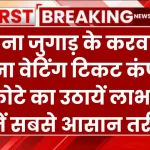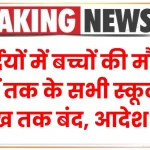
When someone who has taken a loan dies, a pressing question arises: what happens to the loan if the borrower dies? Many families and legal heirs are unsure whether they have to pay the loan, if the bank will seize property, or if the debt simply goes away. This article explains everything in a simple, practical way—so you’ll know what to expect and what steps to take.
Death is emotionally overwhelming, and financial uncertainty only adds to the stress. If you’re a co-borrower, guarantor, or heir, this guide will help you understand your rights and responsibilities, backed by official sources and legal guidelines.
What Happens to a Loan If the Borrower Dies?
| Particulars | Details |
|---|---|
| Loan Type | Secured (Home/Car Loan), Unsecured (Personal Loan, Credit Card) |
| Who Pays After Death? | Co-borrower, guarantor, or legal heir (depending on the case) |
| Collateral Involved? | Yes, for secured loans. Bank may seize the asset on default. |
| Legal Heir Responsibility | Only up to the value of inherited estate (Indian Succession Act) |
| Loan Insurance Coverage | May fully repay outstanding dues if applicable |
When a loan borrower dies, banks do not automatically come after family members. Understanding who pays the loan after death helps you avoid panic and take smart decisions. The key is knowing your role—whether you are a co-borrower, guarantor, or legal heir—and understanding the legal limits of liability.
Always check for loan insurance, communicate with the lender, and seek legal advice if needed. With the right knowledge, you can protect family wealth and reduce financial stress during a difficult time.
Understanding Loan Liability After the Borrower’s Death
Types of Loans and What Happens
Let’s break down the two main types of loans:
1. Secured Loans (like Home Loans, Car Loans)
These are backed by a tangible asset, such as a house or vehicle.
- If the borrower dies, the co-borrower becomes liable to continue EMIs.
- If there is no co-borrower, the guarantor may be approached.
- If neither exists, the legal heirs may be contacted, but their responsibility is limited to the value of inherited assets.
- If unpaid, the bank has the right to seize the asset and auction it to recover dues.
2. Unsecured Loans (like Personal Loans, Credit Cards)
These don’t involve collateral.
- If a co-applicant or guarantor exists, they are liable.
- If not, the bank may write off the debt if no estate remains.
- Legal heirs are not personally liable unless they inherit property or money from the deceased.
For example, if your father had a Rs 5 lakh personal loan with no guarantor or co-borrower, and he left no estate or property, the bank cannot force you to pay.
see also: This Great Scheme of Post Office Will Turn 6 thousand Into 50 Lakhs
Who Exactly Has to Pay?
1. Co-Borrowers
- Share equal liability.
- Must continue repaying, even after the main borrower dies.
2. Loan Guarantors
- Banks can legally approach them.
- This is clearly defined under Indian Contract Law.
3. Legal Heirs
- Responsible only if they inherit the deceased’s assets.
- The liability is limited to the value of the inherited estate, as per the Indian Succession Act, 1925.
- You cannot be forced to pay from your own pocket.
4. Nominees
- Being a nominee does not automatically mean financial liability.
- Nominee is just a custodian of the deceased’s assets until legal distribution.
What If There Is Loan Insurance?
Many loans come with optional loan protection insurance, especially home or personal loans. If the borrower had such a policy:
- The insurer pays the remaining loan amount directly to the bank.
- No burden falls on family, co-borrowers, or heirs.
Loan insurance may be a one-time premium or included in the EMI. It’s always a good idea to check if such insurance was active.
What Happens to the Property or Collateral?
In secured loans:
- If the loan is unpaid and no one takes over repayment, the bank can initiate foreclosure.
- The property or vehicle is auctioned.
- If the auction amount is less than the outstanding loan, the bank can claim the difference only from inherited assets, not personal wealth of heirs.
However, banks often give time to families to find a resolution.
Practical Steps to Take If a Borrower Dies
Step 1: Inform the Bank
Notify the bank about the borrower’s death. Submit a copy of the death certificate.
Step 2: Collect Loan Documents
Retrieve the loan agreement, insurance policy (if any), and EMI details.
Step 3: Check for Co-Borrowers or Insurance
Figure out if there’s a co-borrower or active loan insurance.
Step 4: Talk to the Bank
Discuss repayment options or settlement. Some banks offer compassionate grounds settlements.
Step 5: Get Legal Help
If you’re unsure about liabilities, consult a legal expert specializing in succession and debt laws.
Real-Life Example
Suppose Ramesh took a home loan of Rs 30 lakh. He passed away with Rs 18 lakh still unpaid.
- His wife is the co-borrower. She must continue paying EMIs.
- There is no loan insurance.
- If she defaults, the bank can seize the home.
- If she inherits the house and has no means to repay, she can negotiate settlement or allow auction.
see also: These Rules Related to Your Money Will Change from April 1
Loan If the Borrower Dies FAQs
Q1. If my father had a loan and passed away, will I have to pay it?
Only if you are a co-borrower, guarantor, or inherited his estate.
Q2. Can the bank take my property to recover my parent’s loan?
No. They can only claim from the deceased’s estate, not your personal assets.
Q3. What happens if the loan was insured?
The insurance company pays the balance, and family is not liable.
Q4. Can I refuse to accept inheritance to avoid loan liability?
Yes, under Indian law, you can decline inheritance to avoid associated debts.
Q5. Is the nominee liable to repay loans?
No. A nominee is not liable unless they are also a co-borrower or legal heir who inherits property.











